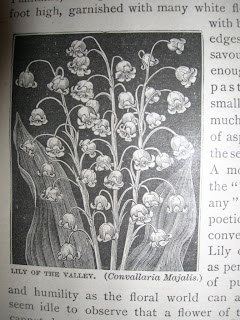
 Recently sold are two antique books dealing with gardening in the late 19th century:
Recently sold are two antique books dealing with gardening in the late 19th century:1884. 1st edition Garden and Farm Topics by Peter Henderson. This scarce agricultural title has very nice multiple architectural plans and illustrations of plants throughout. Dealing specifically with multiple topics:
Popular bulbs and their culture: Hyacinth, Tulip, Lily, Lily of the Valley, Narcissus, Gladiolus, Calla / Egyptian / Lily of the Nile, Amaryllis, Crocus, Iris, Cyclamen, Ranunculus, plus eleven others that I have never heard of (and I have a horticulture minor).
Window gardening, Basket plants and Care of plants in rooms;
Propagation of plants by various methods;
Rose growing in winter;
Green-house Structures and modes of Heating;
Formation and
 renovation of lawns;
renovation of lawns;Onion growing for market;
Growing cabbage and cauliflower;
Growing and preserving celery for winter;
Strawberry culture;
Root crops for farm stock;
plus seven other topics...
AND...
1871 Money in the Garden - A Vegetable Manual, prepared with a view of Economy and Profit, by P. T. Quinn. This scarce agricultural title has very nice line illustrations throughout. Dealing specifically with raising 59 different vegetable crops for profit. A very interesting book. Practical information found in an antique book - see how your great great-grandparents grew vegetables.

